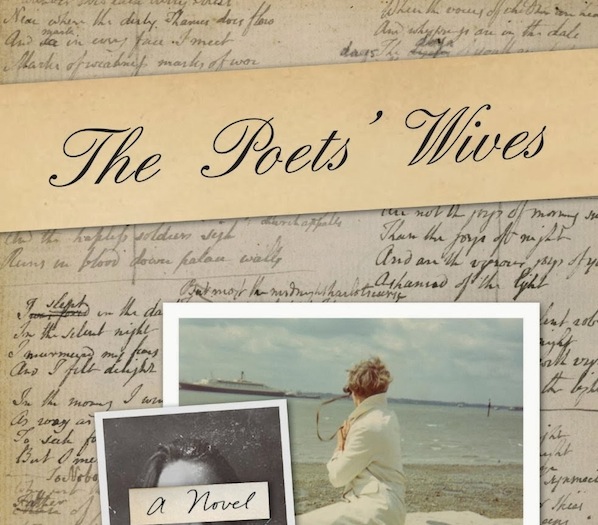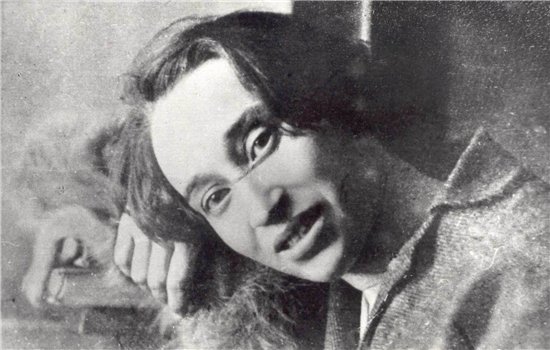Book Review: “The Poets’ Wives” — What Does it Mean to be Married to a Poet?
Taken as a whole, “The Poets’ Wives” is a fascinating, brave novel whose love of poetry breathes through all three sections.
The Poets’ Wives, by David Park, Bloomsbury USA, 297 pages, $25.00.
By Roberta Silman
One of the most pressing questions for fiction writers — a question readers may not even consider or find hard to believe — is: What to write about? “What is your next book about?” people ask endlessly, and the answer is often nebulous because many of us start with just a snippet and don’t know where it will lead us until we start writing. “If only there were an idea store,” one writer friend says; another points out that Tolstoy or Dreiser combed the newspapers for ideas, then — astonishingly — created Anna Karenina and An American Tragedy. Truth plays a part, whether a writer stays close to home or turns to history. And historical fiction, when done well, can give us insights not possible in biography. Indeed, one of my favorite books is the novel Rembrandt by Gladys Schmitt; it is her rendering of his life that informs me every time I look at one of his paintings.
In The Poets’ Wives the very accomplished Irish writer David Park explores the idea of what it means to be a poet’s wife and gives us what are really three novellas, the first two about real people, Catherine Blake and Nadezhda Mandelstam, and the last about a fictional Irish woman whose husband has died suddenly. What is so interesting is how he gets into the heads of these women and creates their very different worlds with such authority.
Although I memorized a lot of Blake in college and have admired his wonderful engravings and knew that he struggled with depression and “voices,” I never thought much about his life or his wife. But here Park gives us a moving picture of a complicated marriage, filled with both ecstasy and disappointment, from Kate’s point of view. We know from his poems and art that he was not an easy man, but Park makes us see that he was lovable and honest in the very important ways, and how much Kate loved him. She came to him illiterate, and he fell in love with her on the rebound from an earlier relationship, but as he taught her to read and appreciate what he was trying to do, the respect implicit in Park’s portrait of her is both moving and authentic. As is the London in which they lived, and which was so inhospitable to his enormous talent.
When Kate finds the newspaper in which William is called “an unfortunate lunatic” after his first exhibition of paintings and poems, she dashes out of the house, afraid he might do harm to himself. Here is their exchange when she finds him:
‘I am like a sea without a shore, Kate,’ he says and I am the one who is startled — by his voice and because I had not thought he was aware of my presence.
‘Come home, William, it’s chilly and you’ve no coat,’ I urge him.
‘I have no need of a coat, Kate — I am wrapped in mortality, this flesh is a prison and my bones the bars of death.’
‘The world is wrong, Will, the world is a fool. And in my heart I know that some day it will realise what it did and you will be known, known and revered by all,’ . . .
Her steadfast loyalty carries her through events that might have defeated a lesser woman, but this section made me glad to have gotten to know her and eager to learn more.
Nadezhda Mandelstam is a completely different matter. She is one of the heroes of the 20th century, and wrote Hope Against Hope and Hope Abandoned, published to great acclaim in the 1970s. (The titles were puns on her name, which means hope in Russian.) She was married to Osip Mandelstam, one of the greatest poets of all time; after the horrible repressive conditions in Russia which forced him to his death in 1938 because he had written a poem insulting Stalin and was also Jewish, she memorized his work and saved it for posterity. Her books are filled with amazing detail not only about the intelligentsia in Russia, but also about their daily life together and with such friends as Akhmatova and Tsvetaeva and Pasternak. What more can Park tell me about that Russia, in which, like many young writers, I had immersed myself?
Within a few pages I saw that Park had, against all odds, gotten to the essence of the Mandelstams’ lives. Moving back and forth in time, he recreates their harrowing life together in a convincing and moving way. Theirs was a love story like none other — and here is Nadezhda, as Park imagines her, thinking about their marriage:
She remembers the cheap blue rings they bought and how he lost his and how she broke hers and asks herself if this was an omen and whether love itself can be so easily severed and sent spinning into some hidden corners from where it can never be retrieved. Already, however, she knows the answer because it is only in their love that she finds herself complete and only in his life is hers lived fully. The voice that was now in her head sounds now like the voice of the interrogator, asking the same type of questions, insidiously trying to make her abandon all the things she is sure of in exchange for admission to some supposedly better life. There can be no better place, she tells him, than with Osip, sharing the way he sees the world, feeling the freedom that exists in their private words and the words she commits to paper.
What I like so much here is the urgency of the unpretentious prose which reveals the terrible conditions under which they all lived, without any tricks to make it more portentous. Park has clearly absorbed the facts and truths of their lives and, magically, turned them into a story that seems fresh. Here she is, after Osip is gone:
She is falling head over heels into old age, her body shrinking into itself, and with it comes a new danger, except it’s not the brittleness of her bones or the weariness of the flesh that torment her now but the slow weakening of memory.
The third section, about a contemporary Irish widow named Lydia, is not as compelling or skillful. Her story seems old and is not pretty: she was married to a respected but not first-rate poet whom she supported with a dull job, they had three children, he womanized and was filled with envy, then died suddenly in his chair in the cottage on the coast to which she has returned. Her ruminations, while surprisingly not as bitter as they could have been, are repetitious and depict a man so self-absorbed that I found myself wondering why on earth she stayed with him. When her daughters arrive, things pick up a bit and by the end, when the family’s whole story is revealed, I found myself more sympathetic to Lydia, especially when she tries to undo some of the harm inflicted by her selfish husband on her appealing and believable daughters.
Taken as a whole, this is a fascinating, brave novel whose love of poetry breathes through all three sections. The risks it takes in its form — even to the beautiful woodcuts that adorn each section — set it apart, and it surely deserves a wider audience than Park has been able to garner thus far in the United States. After reading it, I will go back to my Blake and Mandelstam — as I hope new readers will be inspired to do — and I will also explore Park’s earlier work (there are eight novels, many of which have won awards) with the unique combination of awe and anticipation that comes when we have discovered a new, really good writer.
Roberta Silman is the author of a story collection, Blood Relations, now available as an ebook, three novels, Boundaries, The Dream Dredger, and Beginning the World Again, and a children’s book, Somebody Else’s Child. A recipient of Guggenheim and National Endowment for the Arts Fellowships, she has published reviews in The New York Times and The Boston Globe, and writes regularly for Arts Fuse. She can be reached at rsilman@verizon.net.
Tagged: Catherine Blake, David Park, Irish, Nadezhda Mandelstam, The Poets’ Wives, fiction


